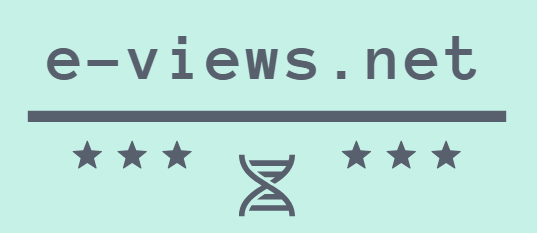You're probably familiar with basic keyword research, but what if you're looking to elevate your SEO game? Advanced techniques like semantic keyword grouping and competitor keyword gap analysis can take your strategy to the next level. Imagine organizing your keywords into clusters that reflect user intent more accurately, or uncovering gaps in your competitors' strategies to seize untapped opportunities. Long-tail keyword expansion is another method that can target niche audiences with precision. If you're curious about how AI tools can streamline these processes with cutting-edge data insights, there's much more to uncover in this realm.
Semantic Keyword Grouping
Semantic keyword grouping is a powerful technique that can revolutionize your SEO strategy by organizing related keywords into clusters based on their contextual meaning. By focusing on semantic relationships rather than individual keywords, you enhance search engines' understanding of your content's relevance.
Start by collecting a comprehensive list of keywords using tools like Google Keyword Planner or Ahrefs. Analyze the search intent behind each keyword to ensure they align with your content goals.
Next, use tools like SEMrush or MarketMuse to identify semantic similarities. These platforms utilize advanced algorithms to highlight relationships between keywords and suggest groupings. When you've identified the clusters, integrate them into your content strategy.
Structure your content around these clusters, ensuring each piece targets a specific group. This approach not only boosts relevance but also improves your site's authority in specific content areas.
Track your performance metrics meticulously. Tools like Google Analytics can provide insights into how semantic grouping affects your visibility and engagement. Monitor changes in organic traffic, bounce rates, and user engagement to refine your strategy.
The ultimate goal is to create a content ecosystem where every piece supports and enhances the others, maximizing your SEO potential.
Competitor Keyword Gap Analysis
Understanding the gaps in your competitors' keyword strategies can give you a significant edge in SEO. Start by identifying competitors in your niche using tools like SEMrush or Ahrefs. These platforms allow you to input a competitor's URL and extract their top-performing keywords.
Analyze these keywords and compare them with your current strategy. Look for keywords they rank for that you don't, as these represent gaps you can exploit.
Next, assess search volume, keyword difficulty, and CPC values for these missed opportunities. Prioritize keywords with a high search volume but low competition.
Analyze your competitor's landing pages to understand how they're utilizing these keywords. Examine on-page factors like title tags, meta descriptions, and content structure.
You should also consider the intent behind these keywords. Are they informational, navigational, or transactional? This insight helps tailor your content and optimize for user intent, improving engagement metrics like click-through rate and dwell time.
Long-Tail Keyword Expansion

While many SEO strategies focus on high-volume keywords, expanding your reach with long-tail keywords can significantly enhance your search engine visibility. Long-tail keywords are typically three or more words and often reflect more specific user queries. These keywords may have lower search volumes, but they usually display higher conversion rates due to their precision.
To effectively expand your long-tail keyword list, start by analyzing existing content and identifying gaps. Employ tools like Google Keyword Planner, SEMrush, or Ahrefs to discover related queries and evaluate their search volume and competition level. Pay attention to user-generated content, such as forums and reviews, to unearth natural language patterns and emerging phrases.
Integrating these findings into your content strategy can align your website with user intent, improving both ranking potential and user satisfaction. Leverage analytics to track performance metrics, such as click-through rates and conversion rates, for your long-tail keywords.
This data-driven approach helps you refine your strategy, ensuring that you're targeting the most effective terms. By focusing on these highly specific queries, you can capture niche markets, boost organic traffic, and ultimately drive more qualified leads to your site.
Leveraging Search Intent
Expanding your long-tail keyword list sets the stage for effectively leveraging search intent, a pivotal component in advanced SEO strategies. By understanding search intent, you align your content with what users seek, enhancing relevance and engagement.
Begin by categorizing search queries into informational, navigational, transactional, and commercial investigation intents. Use data analytics tools to analyze user behavior, identifying patterns in how they interact with your site. This analysis reveals the intent behind their searches, allowing you to adjust your content strategy accordingly.
Implement keyword modifiers that align with user intent, such as "how to" for informational or "buy" for transactional intents. Monitor search trends and user feedback to refine your keywords further. Utilize Google Search Console and similar platforms to assess which queries drive traffic and conversions.
Examine bounce rates and dwell time as indicators of how well your content matches search intent. Regularly update your content based on evolving search behaviors. This dynamic approach ensures your site remains relevant and authoritative.
Utilizing AI Tools

Harnessing the power of AI tools can significantly elevate your SEO keyword research strategy by providing data-driven insights and automating complex processes. With AI, you can quickly analyze vast datasets to uncover hidden keyword opportunities. Tools like Google's AI-powered Keyword Planner or Ahrefs' Keyword Explorer leverage machine learning algorithms to predict keyword trends and identify patterns in user behavior. This allows you to focus on high-value keywords that align with your target audience's search intent.
When you integrate AI tools into your keyword research, you're not just saving time; you're enhancing precision. AI tools can offer semantic analysis, helping you understand the context and intent behind keywords, which is crucial for creating content that resonates with users. Predictive analytics can forecast keyword performance, giving you a strategic advantage in adapting your content strategy.
Moreover, AI-driven competitive analysis can reveal your competitors' keyword strategies, allowing you to identify gaps and opportunities in your own approach. By employing AI tools, you streamline the research process, reduce human error, and ensure your SEO strategy is both robust and forward-thinking, positioning you ahead in the digital landscape.


Leave a Reply